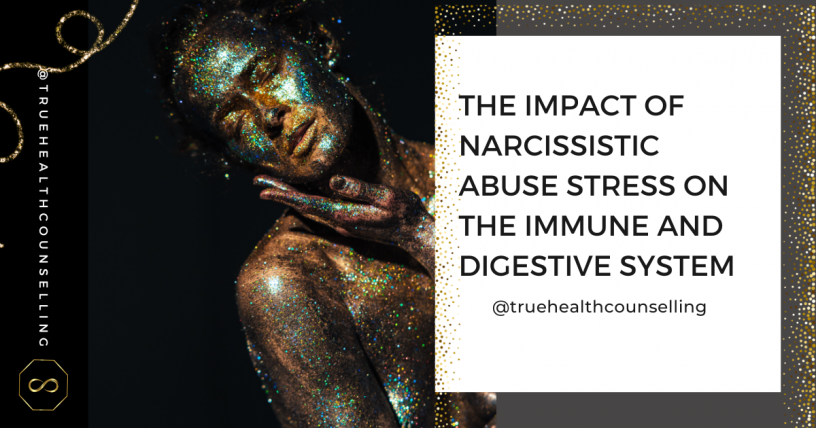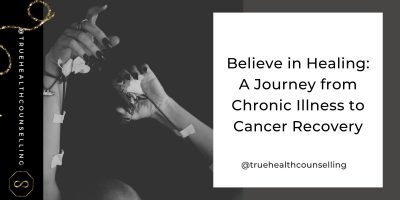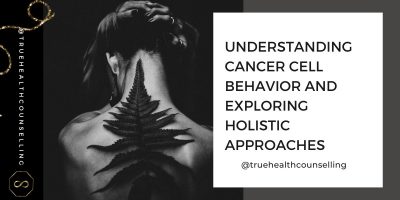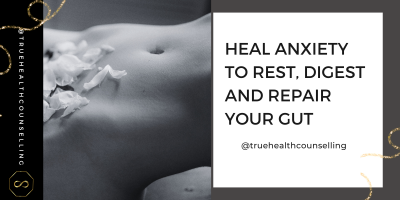The Impact of Narcissistic Abuse Stress on the Immune and Digestive System
When you have grown up with strict or controlling parenting, what happens is that you lose your sense of self and ability to think for yourself and you question whether what you feel is valid or not. Narcissistic abuse or control abuse is a combination of sometimes obvious or subtle forms of verbal, psychological and emotional abuse. To a more severe extent, physical abuse may also accompany. In an intimate relationship, subtle forms of sexual control are also abusive to the body. At any time when the emotions, sexuality and physicality feel unsafe, neglected or invaded by the other, abuse has occurred.
Healing Emotional and Physical Boundaries For Your Health
Abused and broken emotional and physical boundaries with narcissistic abuse destroys the integrity of the body’s health. A healthy person has good emotional and physical boundaries, this person knows his or her limits emotionally and physically and knows how to say no. When a child is very young and emotional or physical abuse has occurred with the parent, the child does not know what to do except how to depend on and survive with the parent. This forms potentially a traumatic bond between child and parent and if abuse has occurred over several years, the child becomes anxious and overly dependent as he or she did not form their own confidence to navigate the world.
A child or person that has undergone controlling narcissistic abuse parenting, with verbal, emotional and physical abuse will feel unsafe and unloved in their entire being. This child or person will navigate the world without knowing their sense of worth and without knowing when or how to stand up for themselves. This child or person will also navigate the world with no boundaries. Many empaths with porous boundaries have come from narcissistic abusive homes. A person with no boundaries will let all negative and all positive emotions and experiences in. This person doesn’t know how to filter or discern the experience around them properly. As a result, this person may have accumulated and held onto much more negative emotions in the body than necessary. When there is invalidation and anger towards a child’s emotions, the child learns to adapt by repressing and holding back angry feelings. Healing PTSD after narcissistic abuse with a specialized complex trauma therapist and related courses can help you understand how to deeply undo the psychological baggage so you can reclaim your true self and health.
People Pleasing and Learning To Say No to Recover from Narcissistic Abuse
People-pleasing happens as a conditional response when a child or person has been brought up in controlling, punitive and power-struggling environments. Imagine you spend your whole life trying to please your parents, your teachers, employees, or your partner and if you have confidence issues and attachment trauma, you may feel very afraid of being abandoned or disappointing them. What happens is that we learn to abandon ourselves and need others before we need ourselves. A level of mistrust on a personal level happens and
losing our identities or having personality disorders like Borderline Personality Disorder or Narcissistic Personality as a response to repeated trauma.
According to Maslow‘s Hierarchy of Human Needs, a person needs to feel safe and belong to their social environment. A person that has grown up with narcissistic abuse or control abuse with no sense of self or damaged self-esteem will fight so hard to feel safe, to belong, seeking acceptance and approval. After all, this is how humans survive socially.
Therefore it is imperative to begin the process of healing narcissistic abuse by needing your true self first, self-approval and self-acceptance. When this happens, boundaries will naturally heal, and then learning when to say no and when to say yes will not be as fearful or confusing. The ability to trust one’s self, to approve and accept oneself makes life decisions and navigating through the world much easier. The person with self-approval and self-acceptance will live life much easier and trust the process of life.
The Psychology of Resistance in Healing Your Trauma Body
Letting go of what we emotionally resist is like a paradox of the conditioned human response to pain and negative emotions, especially from long-term narcissistic abuse. Normal human life is made up of good feelings and bad feelings or good experiences and bad experiences, and sometimes this is dependent on our emotional makeup, personality traits, behaviours and the decision-making in our lives. The level of our sensitivity and judgment determines the level at which we resist negative and painful experiences, that’s just how we are wired. The practice of Somatic Mindfulness can work with this paradox and can help you overcome this resistance by actually feeling what you don’t want to, we begin to undo emotional stress patterns and decondition and deprogram within ourselves what no longer serves us.
When we resist energy, it becomes resistance that we store within our bodies if we do not fully feel, process and experience what is. The more emotional resistance we store and hold within ourselves, The harder life is. Think of life and life‘s creation as flow and resistance, the more flow there is, the easier life is to live or the more resistance, the harder life is to live. The life force Energy, the Qi, Chi or Prana, is within us and when this is blocked or there is a lot of resistance blocking this energy, there is a lack of flow in energy, which can create emotional dysregulation, disorder, disease and illness. Just try to imagine an emotional river that flows or it has dams blocking the flow, these dams are known as our judgment and resistance to what is. This is why it is crucial to process repressed and unprocessed emotional stress that resides within our bodies. Somatic Meditation and Body-Based Trauma Therapy can help you release this kind of trauma to re-regulate your nervous system to heal your body.
The Psychology of Trying vs. Resting Effects on the Body
In our egos, we think that trying hard is a good thing and putting some effort in things is good but when you’re trying too hard, it’s stressful and it means that you’re not coming from a place of worthiness and self-esteem. When we find our rest or our stillness, we don’t need to try as hard because it comes from an eternal place of
knowing we’re good enough as we are. The more that you are trying to convince or prove to others or try to be good enough when there is a lot of unconscious shame, guilt or lack of worthiness, we will work so hard to avoid feeling shame and to pursue feeling good enough. As well, when we are in the orientation of pleasing people and doing things for others, we sometimes lose ourselves in the pursuit of our efforts.
When we try and there is great resistance and force, it means that there is a lot of fight against ourselves. As well, perhaps trying so hard is not our most innate and natural path. For healing, living the life of least resistance means that we follow what comes naturally to our soul instead of it being solely ego-based. When we learn to rest and release the resistance from ourselves inside, we get into our being and know our innate worthiness in the moment and in creation. The more that we are in our being, life becomes easier and the body responds well because there is less stress.
The Psychology of Giving Up and Giving In Vs. Never Giving Up
Too much effort in forcing something to happen instead of letting it flow and going with the flow creates resistance. Too much resistance is chronic stress for the body. Forcing your way through something is the process of the ego instead of being guided by your heart to live life. Before this happens, steps to recovering from narcissistic abuse require us to give up and give in and heal the resistance, the shame, the lack of trust and the impatience. Therapy for narcissistic abuse with a spiritual orientation of surrendering to who you are can guide you in the right direction for your authentic path.
The Psychology of Holding on Vs. Letting Go to Heal Digestion
When we have really sensitive bodies, and we’re holding onto emotions and experiences and we’re hoarding them in our bodies, it’s not good for our bodies and it holds us back from living in alignment with our true selves. Our bowels need movement and flow and they need to let go. Our bowels don’t just digest solely on a physical level, they have feelings and intuitive processes and have a natural intelligence. Therefore when we emotionally, on our body level let go, we will flow, rest and digest. I invite you to heal from narcissistic abuse, release trauma from your body and come home to your true self.
To Your Healing,
Tracey Nguyen, RN, MN, Holistic Nurse Psychotherapist
Please Check My Courses to Begin Healing:
Course 1 - How to Heal Emotions to Heal Your Body
Course 2 - How to Heal Narcissistic Abuse, CPTSD & Codependency






